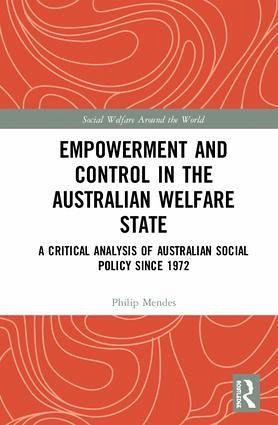
Empowerment and Control in the Australian Welfare State
A Critical Analysis of Australian Social Policy Since 1972
Versandkostenfrei!
Versandfertig in 1-2 Wochen
168,99 €
inkl. MwSt.
Weitere Ausgaben:

PAYBACK Punkte
84 °P sammeln!
Welfare states can have both social care (humanitarian) and social control (oppressive) functions. This book makes the case for an alternative participatory and decentralized welfare state model that would prioritize social care by empowering and supporting welfare service users at a local community level.













